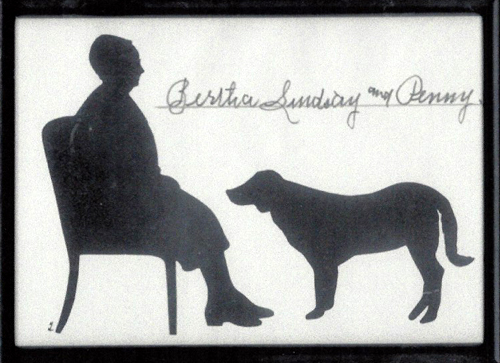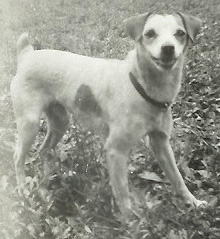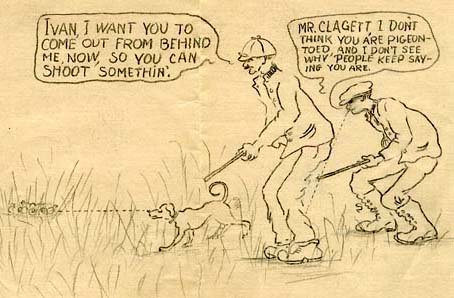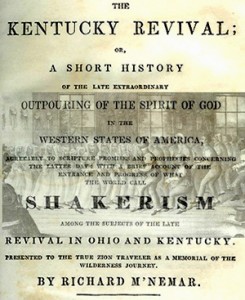With National Dog Day (Aug. 26) recently past, here are a few items in the Manuscripts & Folklife Archives collections of WKU’s Department of Library Special Collections that feature appearances by man’s (and woman’s) best friend.
Bertha Lindsay (1897-1990), an eldress of the Canterbury, New Hampshire Shaker colony and a friend of WKU Shaker scholar Julia Neal, had a silhouette made with her golden retriever, Penny. Bertha played Frisbee with Penny until she (Bertha, that is) was well into her 80s.
While on vacation in 1945, WKU librarian Margie Helm received a long report (no doubt at her insistence) from her dogsitter in Bowling Green. “Now Jiggs is fine,” she assured Margie. Despite a bout with fleas, and once scampering to the door when he thought he heard Margie’s car horn, the little fox terrier was content with his temporary family, sharing their meals of corn bread, muffins, baloney and chicken, and displaying some jealousy when the household’s children got a greater share of attention.
In letters from Alaska, gold prospector Abram H. Bowman of Louisville took a more utilitarian view of his dogs. “Anyone coming into this country should bring lots of dogs as you can always sell them for a good price,” he wrote his uncle in 1898. “You have no idea what a tremendous load these little dogs can pull,” he added. “But they are like lots of people. When you want to hitch them up you better not have the harness in your hand or you will never catch them.”
And for WKU art professor Ivan Wilson, dogs were both helpmates and beloved members of the family. Enduring a long hospitalization in 1927, he dreamed of roaming over the countryside with his colleague, English professor John Clagett, and their favorite hunting dog, “Boy.” Wilson’s papers also include a eulogy for his Irish setter “Rufus the Red,” better known as “Poody.” Warning: readers should have a hankie ready when they peruse this tender tribute.
Click on the links to access finding aids for these collections. For more on dogs and other pets, search TopSCHOLAR and KenCat.





